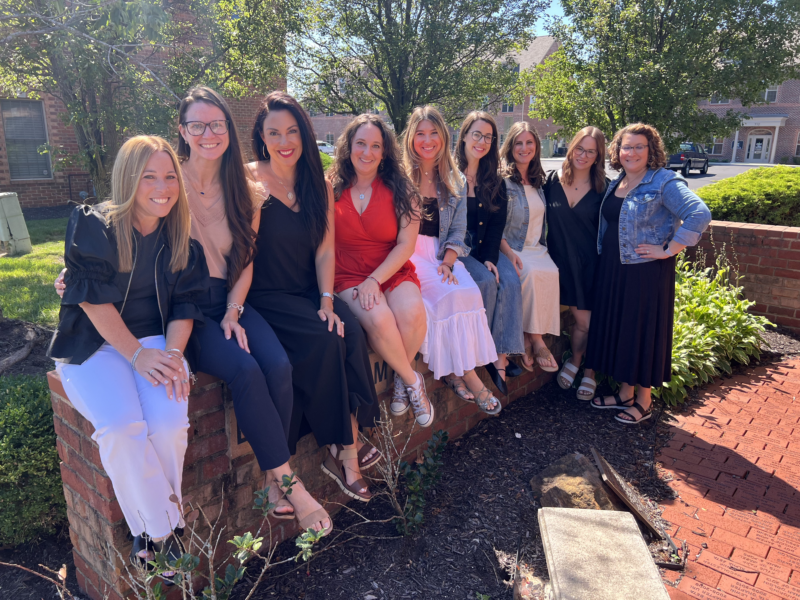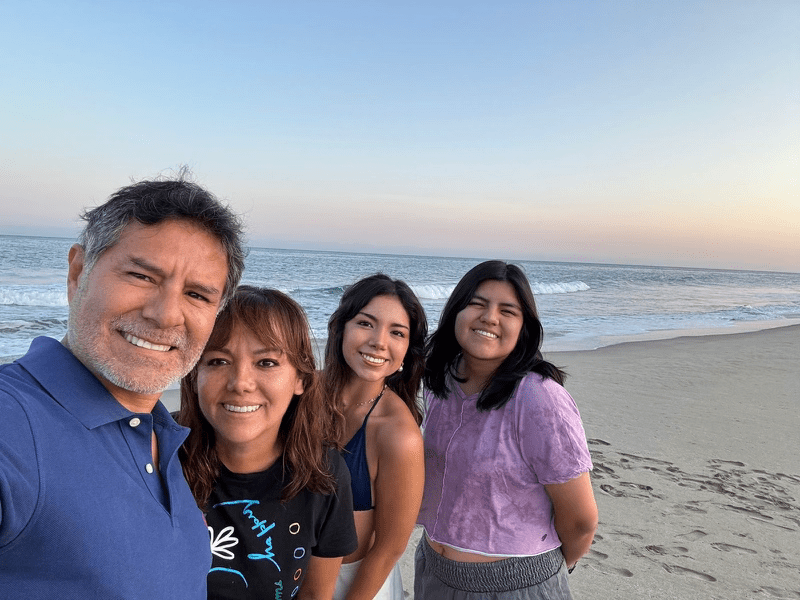 Hispanic Heritage Month is observed annually from September 15 – October 15. The timing coincides with independence days for several Central and South American countries but includes all of the rich and diverse communities who identify as Hispanic. Therefore, celebrations are not solely focused on one culture, country, or set of traditions.
Hispanic Heritage Month is observed annually from September 15 – October 15. The timing coincides with independence days for several Central and South American countries but includes all of the rich and diverse communities who identify as Hispanic. Therefore, celebrations are not solely focused on one culture, country, or set of traditions.
In the United States, more than 18% of citizens identify as Hispanic. Hispanic Heritage Month provides both Hispanics and non-Hispanics the opportunity to explore aspects of culture they may not encounter in daily life.
As an organization founded on the value of inclusion, Sigma Delta Tau celebrates all women. One of the core values of SDT is strength in individuality. In valuing and celebrating each member’s distinct qualities and perspectives, our sisterhood is enriched by diversity. We embrace each woman’s uniqueness, which empowers us to lead authentically as a community.
This article will be the first in a series to personalize heritage months by interviewing sisters whose identities intersect with the cultural celebrations; giving us all the opportunity to celebrate the uniqueness in our sisterhood.
For three sisters at different points of their membership journeys, Hispanic Heritage Month is a special celebration of family, community, pride, and appreciation for the sisterhood that embraces diversity.
Francine, Collegian and Chapter VP of Diversity, Education and Inclusion

Francine Diaz (Gamma Tau–Columbia) found beauty in the diversity of SDT. A proud Ecuadorian, she was raised in New Jersey by her parents, who both immigrated to the U.S. in their twenties. She said they were surrounded by Hispanic people; Ecuadorians, Peruvians, and more. Her first language is Spanish. She serves as Miss Ecuador New York and serves on the Ecuadorian Civic Committee of New York.
Her transition to Columbia University, “was a change, but SDT invited me with open arms,” she said. Francine said the DEI programming initiatives helped her appreciate the differences around her, and the work of the VPs of DEI called her to the position, which she now holds.
“The VPs of DEI always went a step further than just bringing in speakers,” she said. “They thought about the importance of representation, and seeing ourselves in different professions. It’s one thing to read something, but it’s another to have speakers coming in and bringing social justice issues to life,” said Francine.
Francine said she loves that the women in her chapter are smart, conscientious and open-minded. “Our approach is, ‘We’re here to grow.’” Francine said SDT creates a place for women to come together and learn.

“We are collegians, so we want to learn,” she said, “And the friendships and genuine bonds make it so much easier to have conversations about inclusion. It’s not even a job to me. It’s hanging out with my friends while we share our feelings and questions with each other.”
For Hispanic Heritage Month, Francine hosted a potluck on 10/11 with traditional dishes and diverse performances. She also sent information about cultural opportunities throughout NYC. “My sisters are so excited,” Francine said. “Learning together has not been uncomfortable, and we work to be a safe space. We are a community, and what we bring to the table is just extra.”
As the VP of DEI, she loves to program for such curious, smart, and kind women. She said they volunteer at the Community Food Banks in New York City, and she loves watching her friends do meaningful work. “It’s amazing to see sisters speaking Spanish, or practicing their Spanish to make connections during that experience.”
Margaux, Alumna and Volunteer

Margaux Manley Lima (Alpha Mu–Miami) is first-generation Colombian, raised by her single mom in Miami. “[My mom’s] immigrant experience certainly influenced the way she raised my sister and I, and those threads are still really prevalent.”
Miami is also where Margaux’s SDT journey began. She chose the University of Miami to stay close to her family, but wanted her sorority experience to differ from her local friendships.
“Although it wasn’t named when I joined, the value of individuality really speaks to me,” Margaux said. “I joined SDT because I found that there were women from all over the country; different types of women with different sets of experiences and I was really drawn to the beautiful array of women.”
Margaux’s appreciation for the sisterhood has led to an adulthood of commitment to SDT. She was a Leadership Consultant, an advisor, a National Vice President, National President, and now serves on the Board of Directors as the Past National President. Margaux’s sisters and friends are connected to her family, especially her young daughters.

Today, Margaux lives in DC. Her husband is also a first-generation Cuban American.
“Growing up in Miami, I didn’t feel the same need to celebrate as I do now. Here in DC, I do try to capitalize more on this month as an educational moment about issues pertaining to the Hispanic or Latino community,” she said.
“It’s important to take the time to celebrate the commonalities and bonds between Hispanic nations,” said Margaux. “There are through-lines with Hispanic Heritage Month, and I think it’s great to take pride and instill pride.”
Living in DC affords Margaux and her family exposure to diversity in their daily lives. “But in Miami, it’s very Hispanic/Latina forward,” Margaux said. “So how do we feed that element of our identity to our children when it’s not ‘baked into the experience?’”
Each summer, Margaux and her family move to Miami with their extended family. “We want our children to have some roots cultivated through family.” Her daughters experience the true love and culture from their Colombian and Cuban sides for two months out of the year through their Miami adventures.
Alessandra, New Member and International Student

New member Alessandra “Ale” Diaz Cuba (Gamma Mu–Northeastern) expressed a similar experience in finding meaningful bonds. Born and raised in Peru, Ale only left South America recently for college. Though she has studied in English speaking schools for most of her education, Ale said the transitions have been challenging.
“You feel like you have like two personalities, one in one language and one in another. So it was hard to try to merge both and be myself in another language,” Ale said. “I feel like I’ve finally found myself in English.”
Ale’s experience with SDT brought her comfort in the midst of such a huge cultural transition. “Sisterhood round was the defining moment for me,” said Ale. She was paired with a sister from Argentina, Fiona, and they immediately fell into a conversation in Spanish. “I felt the click and the connection. I felt so comfortable.”
Later, Ale met Fiona’s sorority little sister, Jessi, who has Venezuelan roots. “I had this sense of being within a whole community, but also finding a niche community of sisters who were just like me, and that was such a comfort in the whole process.”

Fiona’s Preference Round speech was the,“most influential factor that convinced me to join,” said Ale. “[She shared that] it was hard for her to find her identity, but once she settled in Boston and joined SDT, she got to find herself. I found that really inspiring, because that’s what I want as well.”
Ale said even though she’s been spending time with the sisterhood for less than a month, she feels like she’s found the community she is looking for, and she looks forward to sharing more of her culture with her chapter as their relationships grow.
“I am planning on taking sisters to try Peruvian food or some Peruvian dances, or a little bit of everything! I joke that whenever someone asks me about Peru I could talk about it for hours,” Ale said. She said she was so excited to share the meaning of her Peruvian heritage with her sisters this month. “I’m really proud of my country and I hope more people visit and get to live that experience by themselves.”
Suggestions to Learn about Hispanic Heritage
Margaux, Francine, and Ale all agree that the best way to celebrate Hispanic Heritage Month is to become immersed in the culture, even in simple ways.
Margaux recommends asking friends about formal or informal festivities. “Just be willing to engage with different members of different communities” she said. “The informal opportunities are more powerful because it’s just normal every day rather than a special put-on celebration.”
Francine encourages her fellow SDTs to explore the cultural events in their area. In NYC, of course, there are countless chances to participate, but Francine said opportunities are everywhere.
Ale’s ideas are a bit more specific. “Every single country is so different,” Ale said. “Something cool would be to challenge yourself to try food from each country, or learn more about culture and music.” Ale even offered a Peruvian song to start the journey of education. She said Cuando Pienses En Volver by Pedro Suarez Vertiz got her through some of the most challenging moments of moving away from home. She encourages everyone to take a listen.
Francine said no matter how individual women choose to learn, the SDT community is lucky to have one another. “We do this all year round; valuing every sister for their heritage and backgrounds. Seeing how they celebrate and embrace the culture gets to the core of what SDT is.”

